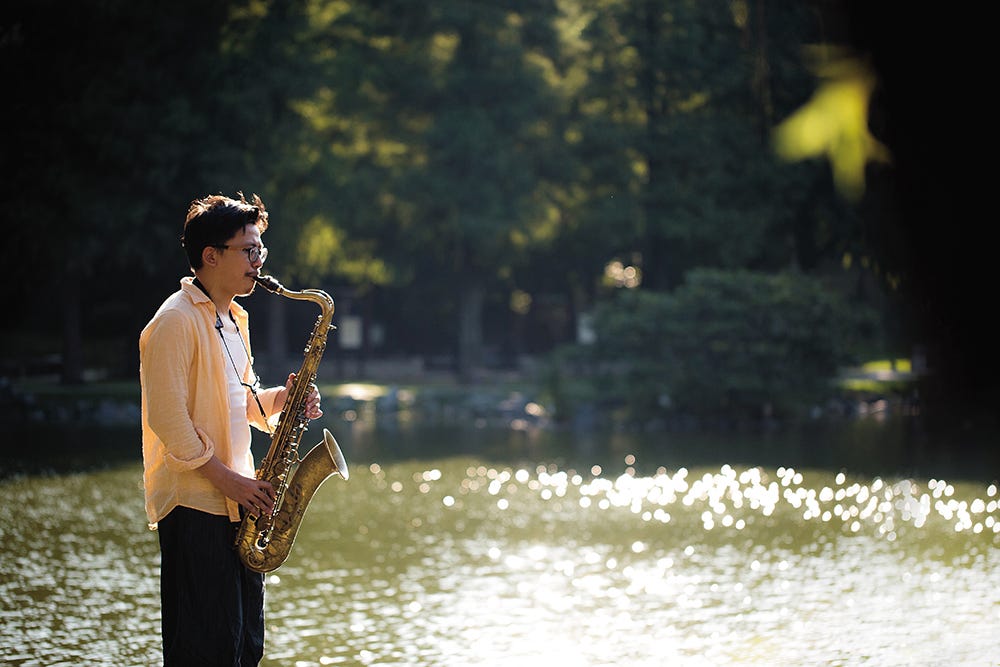Finding His Sound: Minyen Hsieh Reflects on Jazz, Identity, and Taiwanese Democracy
Plus, links and book club on Karissa Chen’s Homeseeking
Hello dear readers,
Many apologies for being out of touch; we’ve had some serious family health issues. We appreciate all the feedback we received on our last post, which addressed a divisive topic in Taiwan—perhaps one of the few issues in recent memory to split progressives so sharply. (The fact that it was written in English offered some degree of insulation from controversy.) We’re grateful to everyone who takes the time to read our work.

Minyen Hsieh (謝明諺) may well be the most important figure in Taiwan’s jazz and improvisational music scene today. A saxophonist, composer, and tireless performer, Hsieh has spent the past decade expanding the possibilities of what jazz can sound like in East Asia. From raw, explosive improvisations to meditative, cross-genre collaborations, his work reflects not only technical mastery but also a constantly curious openness to the world. Now in early forties, he has become…
Keep reading with a 7-day free trial
Subscribe to A Broad and Ample Road to keep reading this post and get 7 days of free access to the full post archives.



